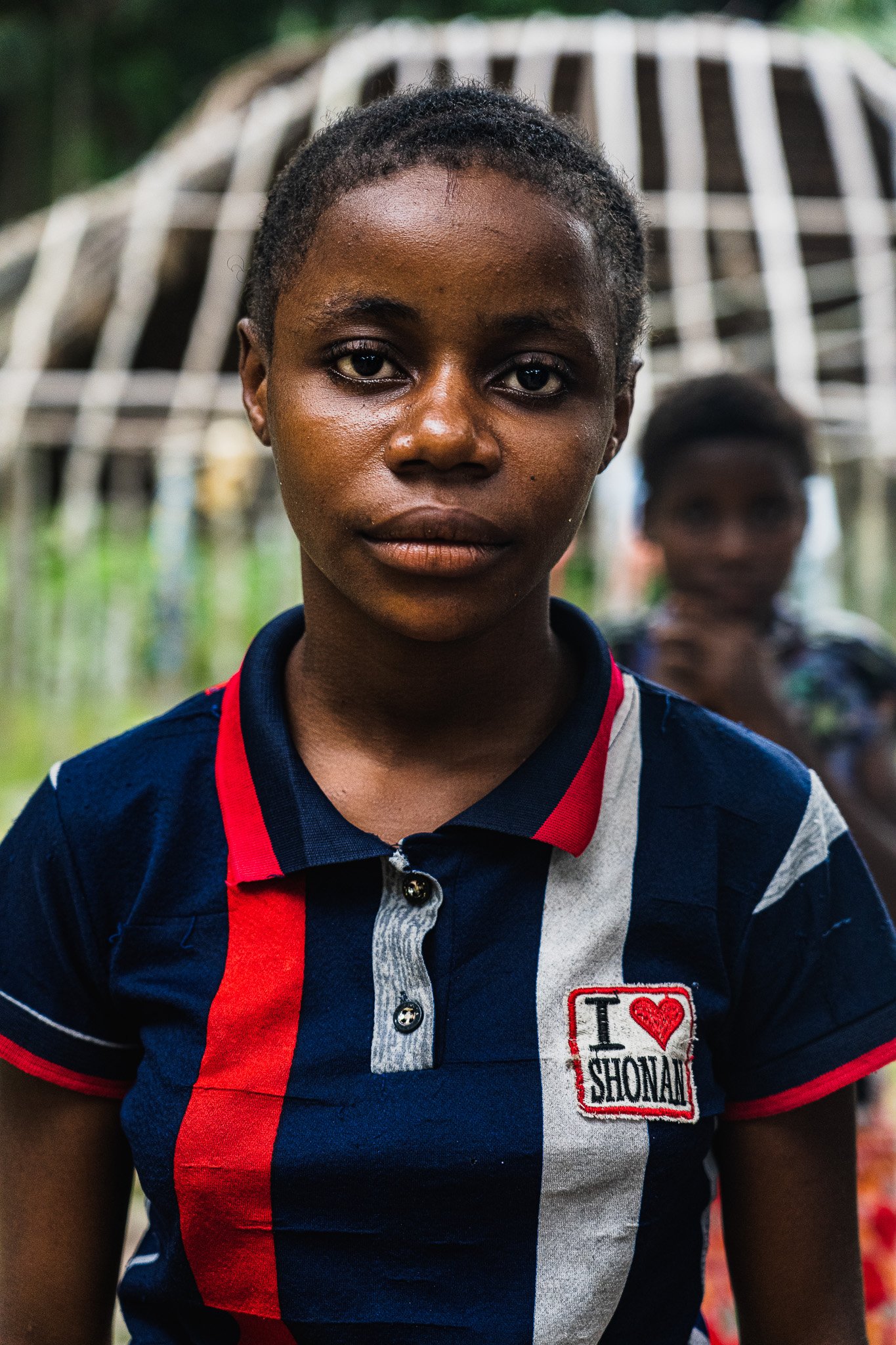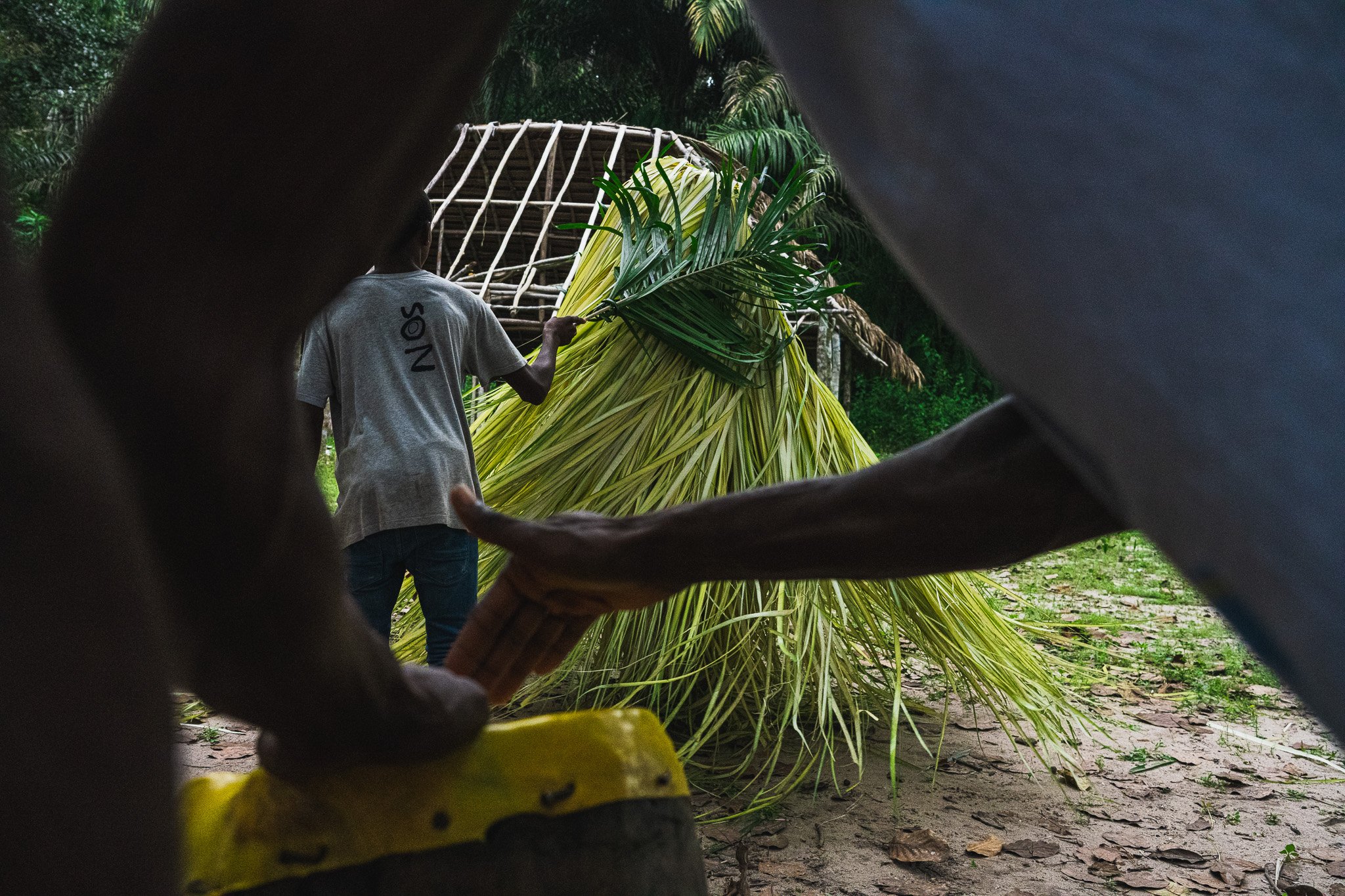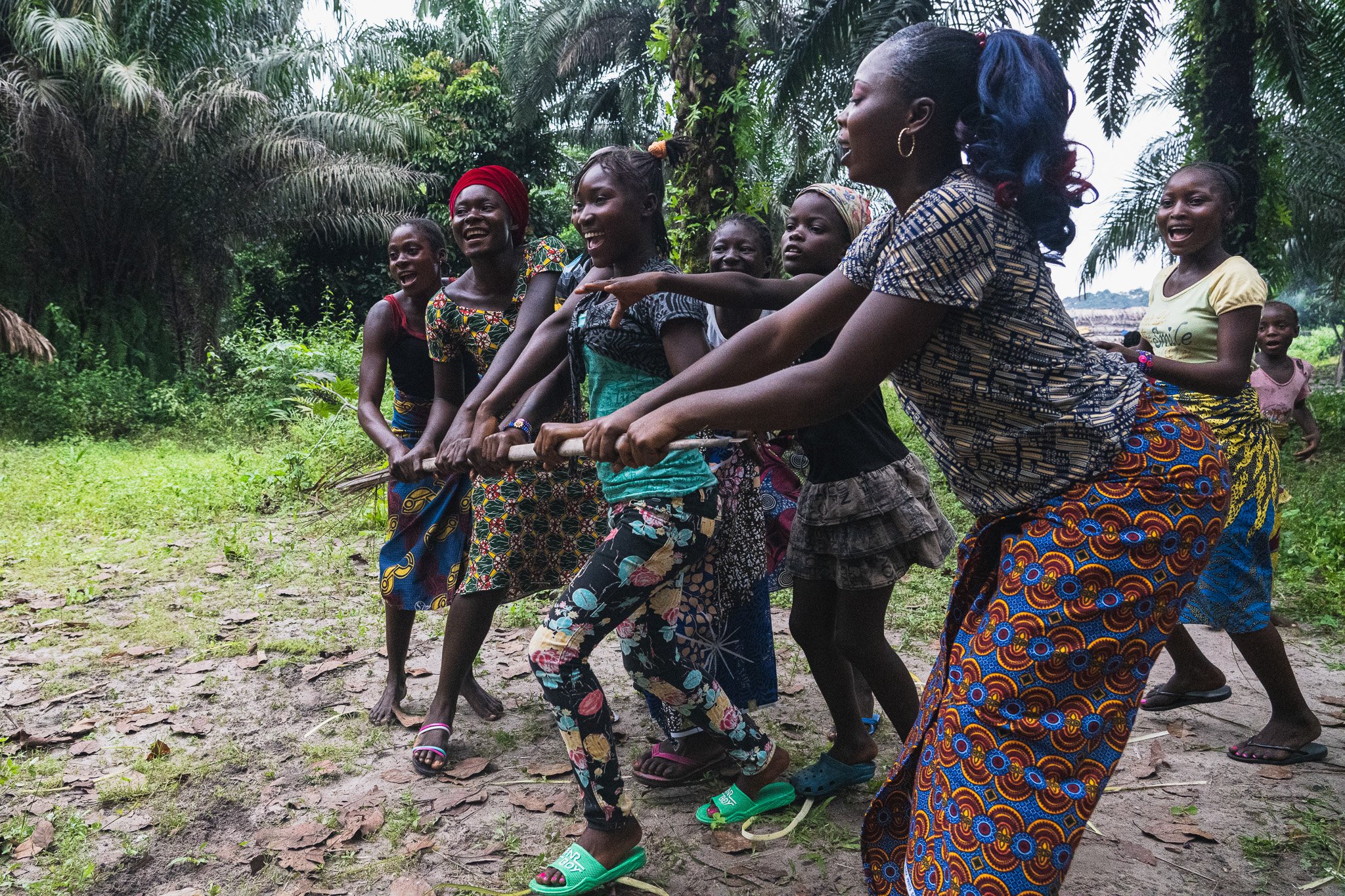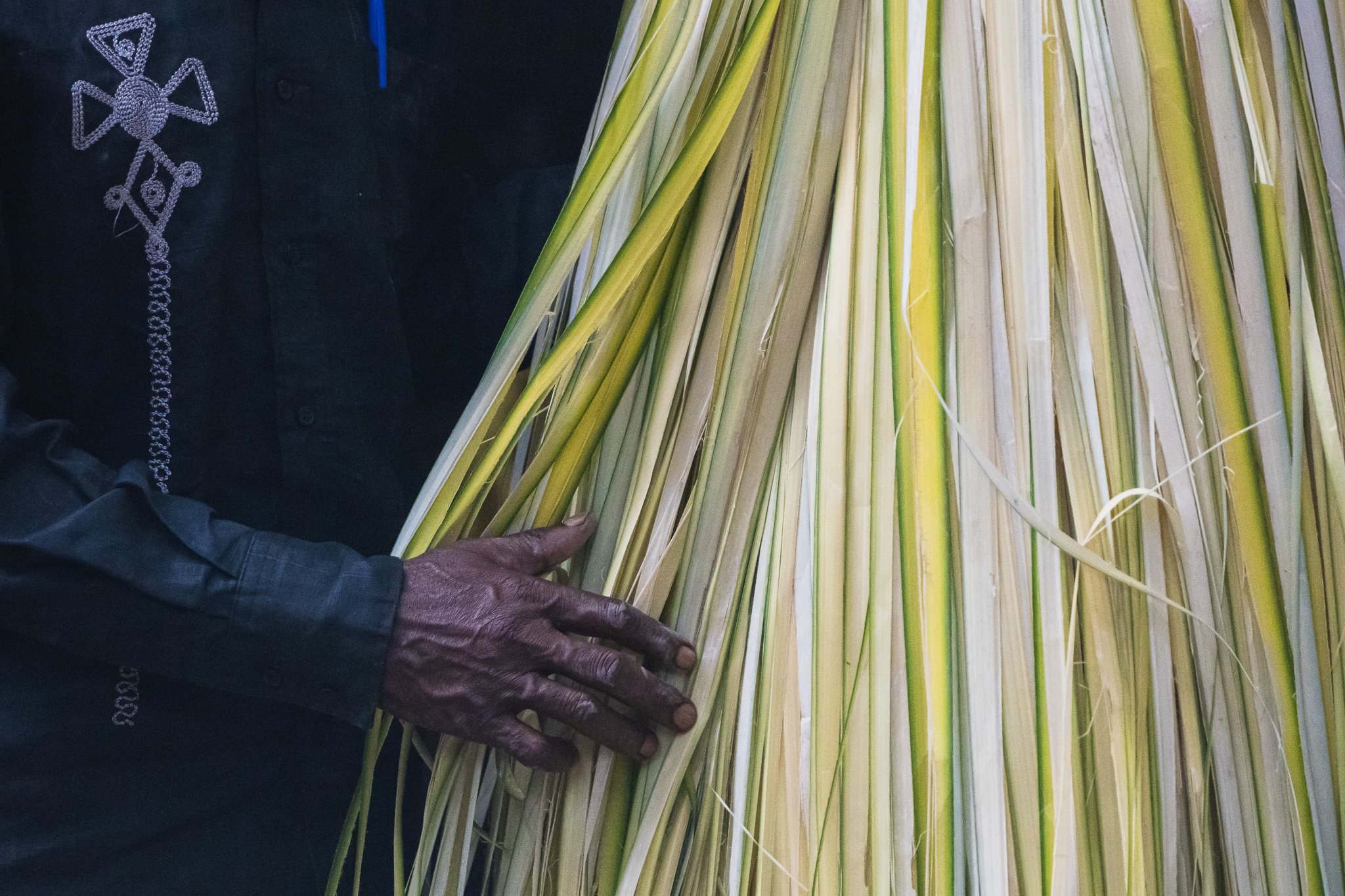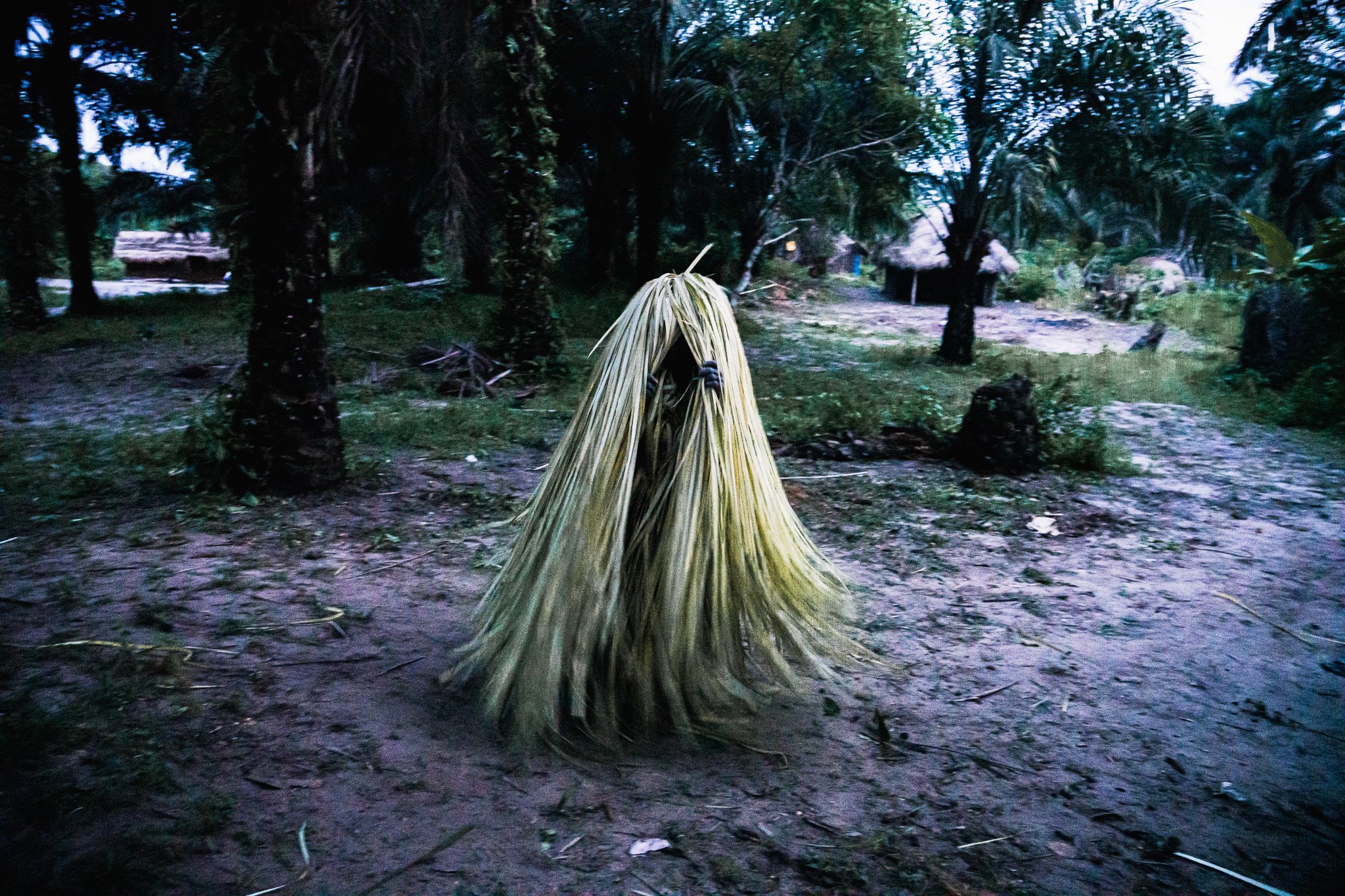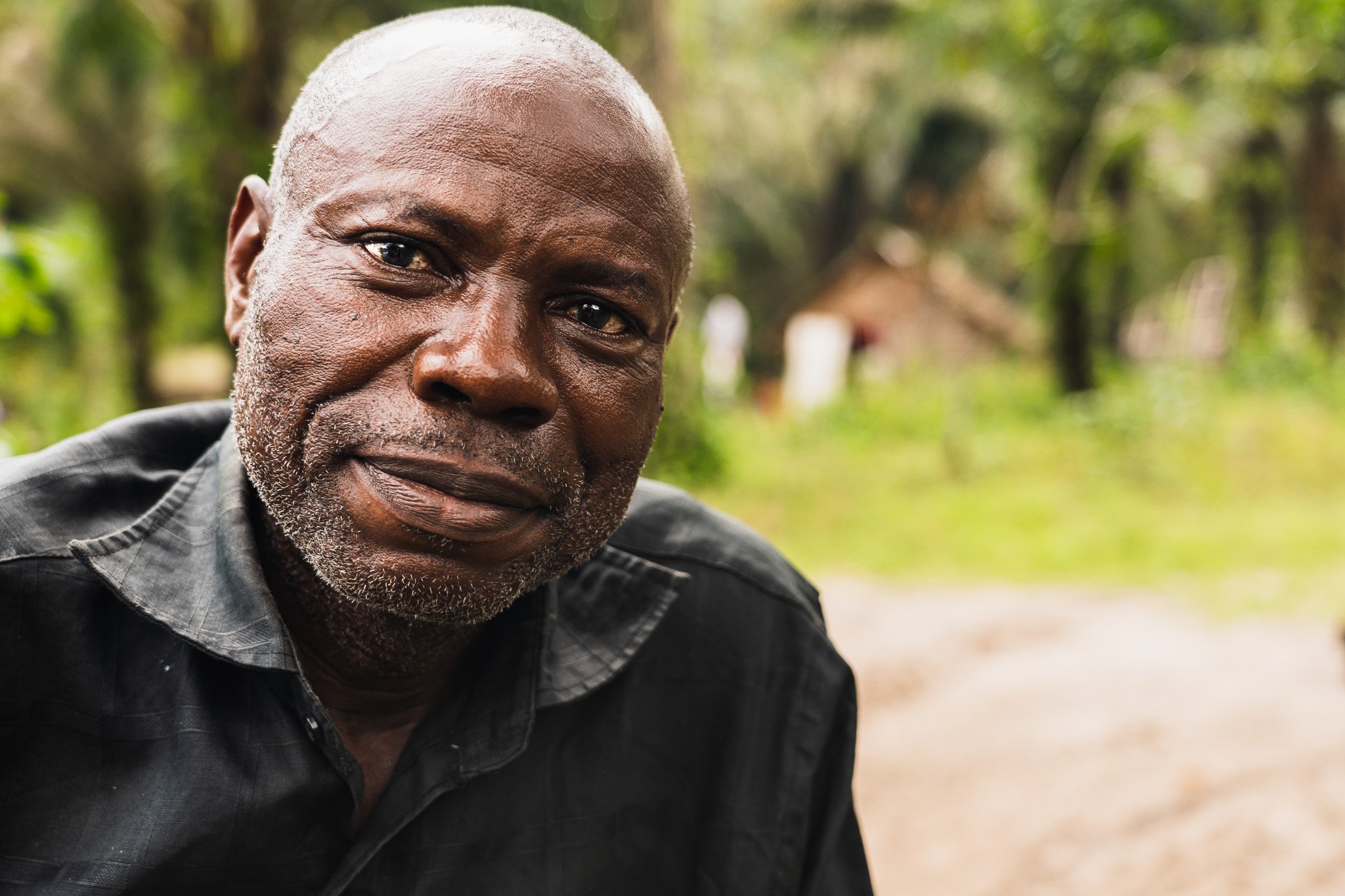Forest Spirits: The Ejengi
For the BaYaka people, the Ejengi is synonymous of abundance. While working in a remote village in Republic of Congo I was lucky enough to see Ejengi dancing. The story of this forest spirit changes, depending on who do you ask. The men will tell you that, long ago, they stole it from the women. Women will tell you that they gave it away because they control stronger spirits. Whatever the story, the truth is that both men and women play a vital role at controlling the Ejengi: Women call the spirit using their dances and songs; Men use their force to prevent that Ejengi hurts the women. In this mutualist interaction, both sexes work together to bring prosperity to their communities.
Consent: Every photograph presented here was taken and shared with the fully informed consent of the people presented here (or their guardians in the case of under-aged children).The Ejengi ceremony will lift the mourning period, by bringing wealth to the community.
BaYaka girl taking part in the Ejengi ceremony.
Women dances and songs will attract the Ejengi out of the forest. However, they incur into risks by doing so.
The Ejengi is a dangerous forest spirit. In order to bring it into the village, thus profiting from the abundance it brings, both men and women have to play their specific roles.
Elderly men taming the Ejengi.
Lotoko (maize wine) and other non-food items like cigarettes and palm wine are also a symbols of abundance brought by the spirit.
Men's other role is to play the instruments that will follow the women's songs. It is the interaction of both men's and women's roles that allows control of the Ejengi and brings wealth and abundance to the community.
One of the daughters of the deceased wears new clothes to celebrate the end of the grieving period.
A line of musicians creates a physical barrier that the Ejengi cannot cross. This line creates a place where children and women can look for safety when being chased by the spirit.
Women courageously facing the Ejengi.
Men are given the task to control the spirit and prevent that it may do any harm to women and initiated men.
Women, children and non-initiated men are not allowed to touch the Ejengi. It is believed that that may kill them. Here, some children hide at the top of the try when they can observe the ceremony in safety.
BaYaka girl during the ceremony covered with a red pigment. This pigment can be used to signalized danger (if someone is sick) but also for aesthetic purposes.
Woman showcases her dancing skills with her malembelembe skirt.
Rafia leaves compose the skin of the spirit.
BaYaka and Bandongo children socialize moments before the appearance of the spirit.
Prior to the ceremony, plenty of food is prepared and distributed though the community. One of the symbols of abundance that the Ejengi brings.
Men's job is to use their strength to control the spirit and protect the community.
The Malembelembe is a type of traditional skirt used for dancing by BaYaka and Bandongo during these ceremonies.
The Ejengi is a time to celebrate.
The line created by the musicians separates women and spirit, and gives them protection.
The deceased's family. The Ejengi serves to end the grieving period for the living.
Some children will wear a rafia leaf in their heads, signalling that they are initiated already. This will let the community and the spirit know that children are in no danger in case they are touched by the Ejengi.
The Ejengi will endlessly rotate during the ceremony. In some occasions, the spirit can sprint, chasing members of the community if left unchecked.
Women of all age will sing and dance, courageously facing the spirit and calling him from the forest.
The husband of the deceased prepares the ceremony. After it, he ends his mourning period and is allowed to remarry.
Elderly man showcase his control over the spirit.
Despite the degree of seriousness of the ceremony, the Ejengi is a energetic and cheerful ceremony where both BaYaka and Bandongo can take part of it.
Upon the treat of being chased by the spirit, women will flee while men will quickly try to control it.
Dancing, singing, and running. The Ejengi is a physically demanding ceremony for the ones involved.

